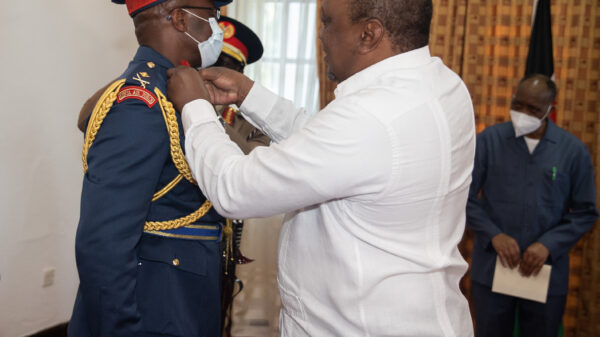When the Nairobi Metropolitan Services (NMS) announced plans to build 24 hospitals in the city’s densely populated slums last year, skeptics questioned the feasibility of the plan citing the high cost of building a hospital in Kenya.
Although NMS later clarified it was building health centers and not hospitals, it has achieved what previous city administrations have failed to do, namely, invest significantly in providing primary health care for residents especially in low-income and vulnerable communities.
Health is a devolved function meaning counties have a primary responsibility in ensuring local communities can access essential medical services at affordable cost, as part of the national Universal Health Coverage (UHC) agenda.
UHC is about ensuring every citizen has access to quality healthcare without incurring a huge financial burden or being pushed into poverty.
The right to health care services is a fundamental right guaranteed under our Constitution. Yet, according to a study by Kemri-Wellcome Trust, 6 out of 10 Kenyans lacked access to essential health services in 2014. Four out of ten were at risk of falling into penury due to high out-of-pocket expenses in seeking treatment.
Such data offers a glimpse into the huge disparities in universal health in Kenya mostly affecting poor urban and rural communities. With the Covid-19 pandemic now stretching our health system to the limit, innovative approaches are needed to bridge the huge gap in access to primary health care.
The World Health Organization defines primary health care as the right of all people, everywhere, to receive the right care, right in their community. Ensuring everyone benefits from essential health services comes at a cost.
The cost of building a general or teaching hospital in Kenya is about $1159 (Ksh 115,900) per square meter, according to a 2017 Africa Construction report by Deloitte. This is just putting up the physical infrastructure not counting equipping the facility and hiring medical personnel.
Certainly, NMS did not have the money to build 24 hospitals but what it lacked in resources, it compensated through efficiency and prudent use of public funds.
At a cost of Ksh 2 billion, the agency has built health centers in places like Majengo, Kayole, Soweto, Korogocho, Kawangware, Mukuru kwa Njenga, Kibra, Githurai and other informal settlements in Nairobi. Half of these are already done with the rest scheduled for completion this month.
So, for only two billion shillings, money that may not appear significant compared to the Ksh 3 trillion national budget, NMS has been able to deliver primary health services to over 2.5 million Kenyans living in poor neighborhoods and slums in less than a year.
The NMS primary health model shows that attaining UHC is possible by directly addressing the needs of the ordinary ‘mwananchi’ while exercising prudent use of public resources. Moreover, the positive benefits will be felt not only by those using the NMS facilities, but all Kenyans given the new health centers will ease pressure on Kenyatta National Hospital, the country’s largest referral facility.
Kenya’s health system is organised at six levels. Community services, dispensaries and clinics are found at levels 1,2 and 3 respectively. At Level 4 are sub-county hospitals and medium-sized private hospitals. Level 5 comprises county referral hospitals and large private hospitals. National referral hospitals and large private teaching hospitals are at Level 6.
It is at Level 1,2 and 3 that we need to invest more resources because that is where the majority of Kenyans interface with primary health care (PHC) services.
With the government having set aside Ksh 47.7 billion to fund UHC programs and activities in the 2021/2022 financial year, priority should be on revamping the PHC system.
Ordinarily, roughly 40 per cent of our national health budget goes to curative services, with PHC receiving a small fraction. But this has been changing as the government scales up primary health interventions like maternal, neonatal and child health.
Counties should prioritize community health services when allocating resources for health provision especially to poor and hard-to-reach areas. The Health Act 2017 allocates PHC functions fully to county governments.
In addition, primary care should also include preventive health programs targeting both communicable and non-communicable diseases.
Also, the National Health Insurance Fund should prioritize PHC coverage as part of ongoing reforms to fully onboard the informal sector and vulnerable groups like the elderly and persons with disability.
Constructing big hospitals is good for strengthening the referral health system but for UHC to take root, let’s start with simple, actionable steps like NMS has done. That way, universal health will be a reality to the majority of suffering Kenyans to whom affordable care has been a mirage.
Mr. Choto is a lawyer and policy analyst.
Email: kingorichoto@gmail.com
























































